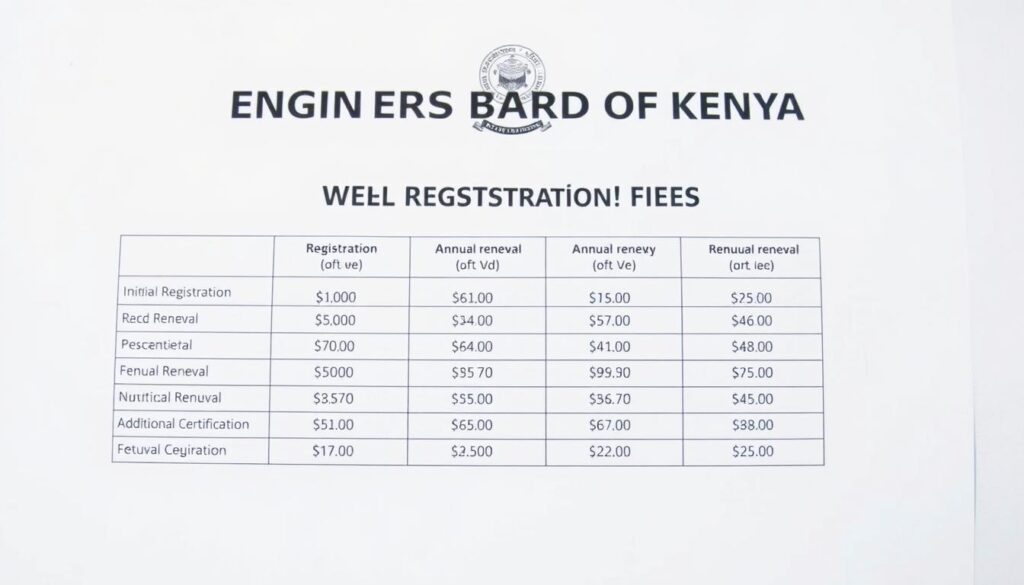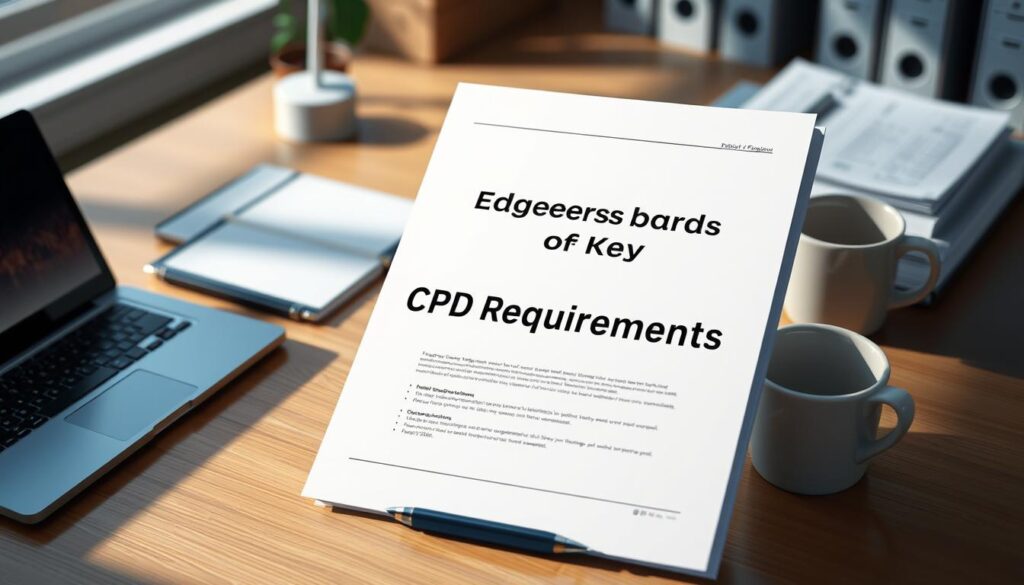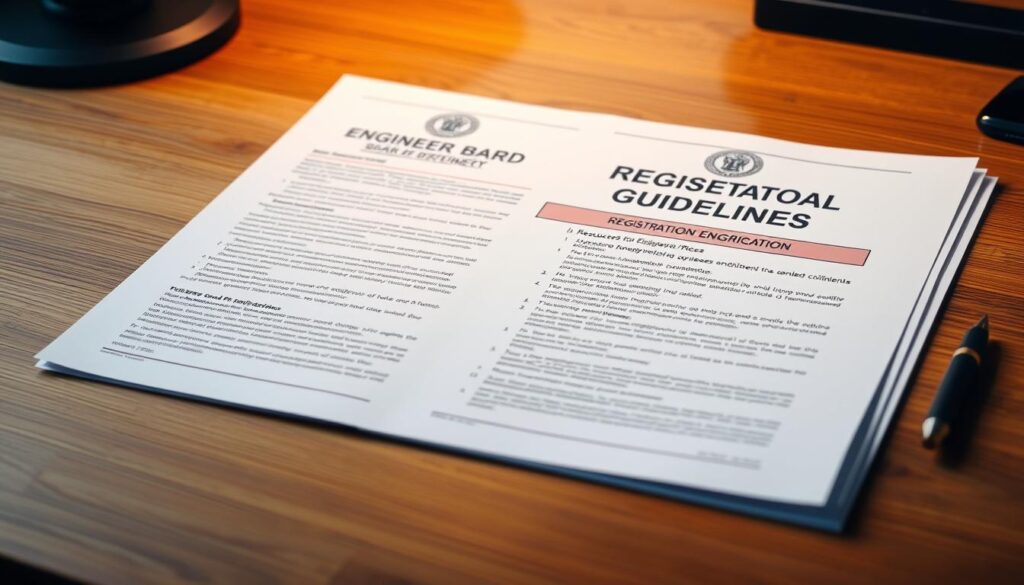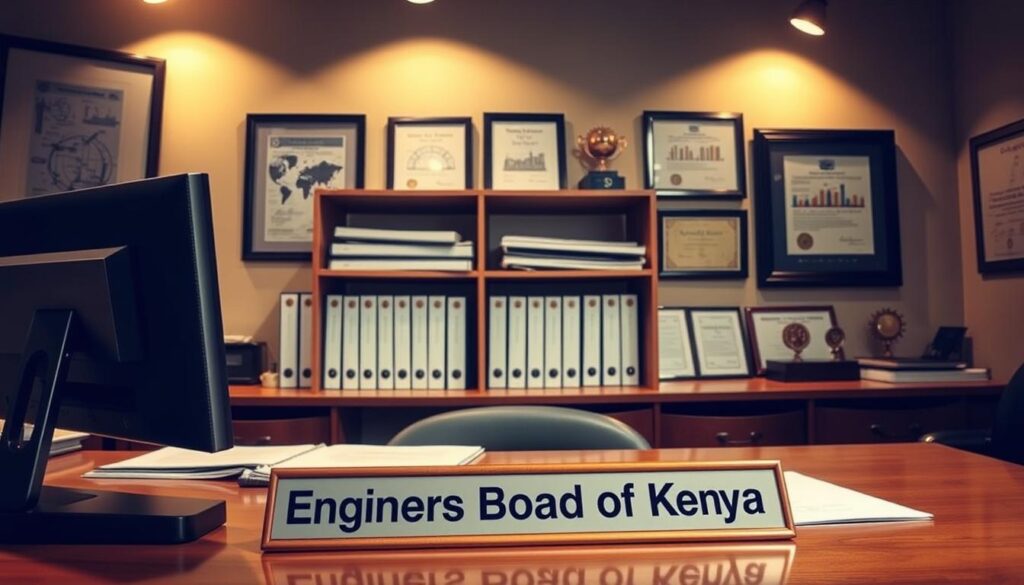Are you an engineer looking to practice your profession in Kenya? Do you know what it takes to become a registered engineer in Kenya? Registering with the Engineers Board of Kenya is a crucial step in advancing your engineering career. This comprehensive guide will walk you through the essential steps and requirements for registration.
Registration is key to unlocking new opportunities and ensuring that your qualifications are recognized. Whether you’re a recent graduate or a seasoned professional, this guide is designed to provide you with the necessary information to navigate the registration process smoothly.
Key Takeaways
- Understand the eligibility criteria for registration.
- Learn about the required documents for the application process.
- Discover the steps involved in maintaining your registration.
- Get insights into the benefits of registering with the Engineers Board of Kenya.
- Find out how registration can advance your engineering career.
What is the Engineers Board of Kenya?
Understanding the Engineers Board of Kenya is essential for engineers practicing in Kenya. The Board is the regulatory body responsible for overseeing the engineering profession in the country.
Overview of the Board’s Functions
The Engineers Board of Kenya’s primary function is to ensure that engineers practicing in Kenya meet the required standards of competence and professionalism. This involves setting standards for engineering education, evaluating the qualifications of engineers, and maintaining a register of qualified engineers.
The Board also plays a crucial role in promoting the development of the engineering profession in Kenya. It works closely with engineering institutions, universities, and other stakeholders to ensure that the engineering curriculum is relevant and meets international standards.
Importance of Registration
Registration with the Engineers Board of Kenya is vital for engineers as it validates their qualifications and experience. This not only enhances their credibility but also opens up more career opportunities. Registered engineers are recognized as competent professionals, capable of undertaking complex engineering projects.
Moreover, registration is often a requirement for practicing engineering in Kenya. It is a legal necessity for engineers who wish to work independently or start their own engineering firms. By registering, engineers demonstrate their commitment to upholding the standards and ethics of the profession.
Eligibility Criteria for Registration
Eligibility for registration with the Engineers Board of Kenya is determined by certain educational and professional standards. To become a registered engineer, applicants must meet specific requirements that validate their competence and expertise in their field.
Educational Requirements
The Engineers Board of Kenya requires applicants to hold a recognized engineering degree from an accredited institution. This degree should be in a relevant field of engineering and must be obtained from a university or institution that is recognized by the Board.
Key Educational Requirements:
- A bachelor’s degree in engineering or a related field
- The degree must be from an accredited institution
- Relevance of the degree to the engineering field
Professional Experience
In addition to educational qualifications, applicants must also have relevant professional experience. This experience is crucial as it demonstrates the applicant’s ability to apply theoretical knowledge in practical situations.
Professional experience requirements include:
- A minimum number of years of experience in the engineering field
- Experience must be relevant to the applicant’s field of engineering
- Documentation of experience, such as letters from employers or project details
| Criteria | Requirement |
|---|---|
| Educational Qualification | Recognized engineering degree |
| Professional Experience | Relevant experience in the engineering field |
| Documentation | Degree certificate, transcripts, and experience documents |

Types of Registration Offered
The Engineers Board of Kenya offers various registration categories tailored to different stages of an engineer’s career, ensuring that professionals are recognized appropriately based on their qualifications and experience.
Graduate Engineer Registration
Graduate Engineer Registration is designed for individuals who have recently completed their engineering degree from a recognized institution. This category is ideal for fresh graduates who are embarking on their professional journey. To be eligible, applicants must have a Bachelor’s degree in Engineering or a related field from a recognized university.
The registration process for graduate engineers involves submitting academic transcripts, degree certificates, and other relevant documents to the Engineers Board of Kenya. This registration is a crucial step towards becoming a professional engineer, as it allows individuals to gain practical experience under the supervision of experienced engineers.
Professional Engineer Registration
Professional Engineer Registration is for engineers who have gained significant experience and qualifications in their field. To qualify, applicants must have a Master’s degree in Engineering or a related field, or a Bachelor’s degree with a substantial amount of professional experience. They must also have demonstrated competence in their area of specialization.
The registration process for professional engineers involves a more rigorous evaluation, including a review of their professional experience, projects they have worked on, and their contributions to the engineering field. This category of registration is essential for those who wish to practice as consulting engineers or take on senior roles in their organizations.
| Registration Type | Eligibility Criteria | Required Documents |
|---|---|---|
| Graduate Engineer | Bachelor’s degree in Engineering | Academic transcripts, degree certificate |
| Professional Engineer | Master’s degree or Bachelor’s with significant experience | Academic transcripts, degree certificate, experience letters |
Understanding the different types of registration offered by the Engineers Board of Kenya is crucial for determining which category you fall into and what you need to do to get registered. Whether you are a recent graduate or a seasoned professional, the Board’s registration categories are designed to recognize your qualifications and experience.
The Application Process
Understanding the application process for registration with the Engineers Board of Kenya can significantly streamline your journey to becoming a registered engineer. The registration process is multifaceted, involving several steps from preparation to submission.
To start, it’s essential to familiarize yourself with the Engineers Board of Kenya registration requirements. This includes understanding the eligibility criteria, the types of registration available, and the documentation needed.
Step-by-Step Application Guide
Here’s a step-by-step guide to help you navigate the application process:
- Prepare Your Documents: Ensure you have all necessary documents, including academic certificates, professional experience letters, and identification.
- Fill Out the Application Form: The application form can be obtained from the Engineers Board of Kenya’s official website or office. Ensure all information is accurate and complete.
- Submit Your Application: Once your application is complete, submit it along with the required documents and fees to the Engineers Board of Kenya.
- Wait for Processing: After submission, your application will be processed. This may involve verification of your documents and assessment of your qualifications.

Required Documentation
The documentation required for registration includes:
| Document Type | Description |
|---|---|
| Academic Certificates | Certified copies of your degree or diploma in engineering. |
| Professional Experience Letters | Letters from previous employers detailing your engineering experience. |
| Identification | A valid national ID or passport. |
Ensuring you have all the required documentation ready will significantly reduce the processing time for your application. It’s also advisable to check with the Engineers Board of Kenya for any additional requirements.
How to Complete the Registration Form
The registration process with the Engineers Board of Kenya begins with understanding how to properly fill out the registration form online. This guide will walk you through the steps to complete the form accurately and efficiently.
Online Registration Instructions
To start, visit the Engineers Board of Kenya’s official website and navigate to the registration portal. Here, you will find the online registration form, which is divided into several sections. Each section requires specific information, so it’s essential to have all necessary documents ready before you begin.
Step-by-Step Guide:
- Fill in your personal details, including name, contact information, and identification number.
- Provide educational background, including degrees earned and institutions attended.
- Detail your professional experience, including current and past employment, job titles, and responsibilities.
- Upload required documents, such as academic certificates and proof of professional experience.
Tips for Filling Out the Form
To ensure your application is processed smoothly, follow these tips:
- Double-check all information for accuracy before submitting.
- Use the provided guidelines for each section to understand what information is required.
- Ensure all uploaded documents are clear and legible.
Completing the registration form accurately is crucial for a successful application. The following table summarizes the key information required for each section of the form:
| Form Section | Required Information | Documents Needed |
|---|---|---|
| Personal Details | Name, contact information, ID number | ID copy |
| Educational Background | Degrees, institutions, dates attended | Academic certificates |
| Professional Experience | Employment history, job titles, responsibilities | Employment letters, CV |
By following these guidelines and tips, you can ensure that your registration form is completed correctly, facilitating a smooth application process with the Engineers Board of Kenya.
Fees Associated with Registration
Registering with the Engineers Board of Kenya requires a clear understanding of the associated costs and payment methods. The fees for registration are an essential aspect of the process that prospective engineers must consider.
Breakdown of Registration Costs
The costs associated with registering with the Engineers Board of Kenya vary depending on the type of registration. For instance, graduate engineer registration and professional engineer registration have different fee structures. It’s essential to understand these costs to budget accordingly.
- Application Fee: This is a one-time fee paid during the initial application process.
- Registration Fee: This fee is paid upon successful registration and is typically annual or biennial.
- Licensing Fee: For professional engineers, a licensing fee may be required to practice in specific areas.
According to the Engineers Board of Kenya’s guidelines, the total cost for registration can range from KES 10,000 to KES 50,000, depending on the category and type of registration.

Payment Methods Available
The Engineers Board of Kenya offers various payment methods to facilitate the registration process. These include:
- Bank Deposit: Applicants can make payments through bank deposits using the Board’s official bank details.
- Online Payment: The Board’s website often provides an online payment portal for convenience.
- Mobile Money: Some payments can be made through mobile money services, offering flexibility.
It’s crucial to verify the accepted payment methods with the Engineers Board of Kenya to ensure a smooth transaction process.
Understanding the fees and payment methods is a critical step in the registration process, enabling prospective engineers to plan and budget effectively.
Understanding the Registration Timeline
Knowing the registration timeline is vital for engineers planning their careers in Kenya. The registration process with the Engineers Board of Kenya involves several steps, from application submission to approval.
How Long Does the Process Take?
The duration of the registration process can vary, but typically, it takes around 3 to 6 months for the Engineers Board of Kenya to process an application. This timeframe can be influenced by several factors, including the completeness of the application and the speed at which the applicant responds to any queries from the Board.
To give you a clearer understanding, here’s a breakdown of the typical registration process timeline:
| Process Stage | Typical Duration |
|---|---|
| Application Submission | 1-3 days |
| Initial Review | 1-2 weeks |
| Detailed Evaluation | 2-3 months |
| Registration Approval | 1-2 weeks |
Factors That May Delay Registration
Several factors can delay the registration process. These include:
- Incomplete or inaccurate application: Ensure all required fields are filled correctly.
- Insufficient documentation: Make sure to attach all necessary documents.
- Pending verification: Delays in verifying qualifications or experience can slow down the process.
To avoid delays, it’s crucial to carefully review the application requirements and submit a complete application. Regularly checking the status of your application on the Engineers Board of Kenya’s website can also help you stay informed.
Continuing Professional Development
Continuing Professional Development is a vital aspect of an engineer’s career, ensuring they remain competent and current with industry advancements. The Engineers Board of Kenya mandates CPD for registered engineers, underscoring its importance in maintaining professional standards.
Importance of CPD for Engineers
CPD is crucial for engineers to enhance their skills, adapt to new technologies, and address emerging challenges in their field. By engaging in CPD activities, engineers can:
- Stay updated with the latest industry trends and technologies.
- Improve their professional competence and performance.
- Enhance their career prospects and opportunities for advancement.
- Contribute to the development of the engineering profession.
Engaging in CPD is not just a professional obligation; it’s an investment in one’s career and the future of the engineering field.
CPD Requirements for Registered Engineers
The Engineers Board of Kenya has established specific CPD requirements for registered engineers. These include:
- Completing a minimum number of CPD hours within a specified period.
- Engaging in a variety of CPD activities, such as workshops, seminars, and online courses.
- Maintaining records of CPD activities for auditing purposes.
Registered engineers are expected to adhere to these requirements to maintain their registration and stay compliant with the Board’s regulations.

By prioritizing CPD, engineers demonstrate their commitment to excellence and to staying current with the evolving demands of the engineering profession.
Code of Ethics and Conduct
The Code of Ethics and Conduct set forth by the Engineers Board of Kenya is crucial for maintaining the integrity of the engineering profession. This code outlines the professional standards expected of registered engineers, ensuring that they conduct their work with the utmost integrity, honesty, and respect for the public and the environment.
Overview of the Code
The Code of Ethics and Conduct is a comprehensive guide that covers various aspects of professional engineering practice. It includes principles related to:
- Honesty and integrity in professional dealings
- Respect for the environment and public safety
- Confidentiality and fairness in professional judgments
- Continuing professional development to stay updated with the latest technologies and practices
By adhering to this code, engineers demonstrate their commitment to ethical practices, which is essential for building trust with clients and the public.
Importance of Ethical Practices
Ethical practices are the backbone of the engineering profession. They ensure that engineers prioritize the safety, health, and welfare of the public in their work. Ethical practices also promote a positive image of the profession and foster a culture of accountability among engineers.
Key benefits of ethical practices include:
- Enhanced public trust in the engineering profession
- Improved safety and quality of engineering projects
- Better professional reputation for engineers
- Increased accountability and transparency in professional conduct
Engineers who adhere to the Code of Ethics and Conduct not only contribute to the betterment of society but also elevate the standards of their profession.
Maintaining Your Registration
The Engineers Board of Kenya mandates that registered engineers renew their registration periodically to continue practicing legally. This ensures that engineers stay updated with the latest professional standards and continue to meet the Board’s requirements.
Renewal Process and Requirements
To maintain your registration, you will need to undergo a renewal process. This involves submitting an application to the Engineers Board of Kenya, typically within a specified period before your current registration expires. The renewal application requires updated information about your professional development and compliance with the Board’s continuing professional development (CPD) requirements.
The specific requirements for renewal may include:
- Completing a renewal application form, which can usually be obtained from the Engineers Board of Kenya’s website or office.
- Providing evidence of continuing professional development (CPD) activities.
- Paying the required renewal fees.
- Submitting any additional documentation as required by the Board.
| Renewal Requirement | Description |
|---|---|
| Renewal Application Form | To be completed with updated professional information. |
| CPD Evidence | Documentation showing compliance with CPD requirements. |
| Renewal Fees | Payment as specified by the Engineers Board of Kenya. |
Consequences of Failing to Renew
Failing to renew your registration can have serious consequences, including:
- Loss of legal status to practice as an engineer in Kenya.
- Removal from the Engineers Board of Kenya’s register of engineers.
- Potential legal action for practicing without valid registration.
It is crucial to keep track of your registration renewal date to avoid these consequences. The Engineers Board of Kenya may also send reminders, but the responsibility to renew lies with the registered engineer.

Frequently Asked Questions
Understanding the Engineers Board of Kenya registration requirements is crucial, and we’re here to help clarify common queries. The registration process can be complex, and applicants often have questions about the steps involved.
Common Queries About Registration
Many engineers wonder about the eligibility criteria for registration. To be eligible, applicants must meet specific educational requirements and have relevant professional experience.
Some common questions include: “What are the educational requirements for registration?” and “How much professional experience is needed?” The Engineers Board of Kenya typically requires a degree in engineering or a related field from a recognized institution, along with a certain number of years of experience in the field.
- Graduate Engineer Registration: This typically requires a bachelor’s degree in engineering.
- Professional Engineer Registration: This requires both a bachelor’s degree and a certain amount of professional experience.
Tips for New Applicants
For new applicants, it’s essential to ensure that all documentation is in order before submitting the application. This includes transcripts, certificates, and letters of recommendation.
Here are some tips to make the application process smoother:
- Double-check the application form for any errors or omissions.
- Ensure all required documents are attached and are up-to-date.
- Submit the application well in advance of the deadline to avoid last-minute issues.
By following these tips and understanding the registration requirements, applicants can navigate the process more effectively.
Resources for Engineers in Kenya
Beyond registration with the Engineers Board of Kenya, numerous resources are available to support engineers in their professional development. These resources include various professional organizations and associations, as well as networking opportunities that can be beneficial for career advancement.
Professional Organizations and Associations
Kenya is home to several professional organizations and associations that cater to the needs of engineers. These organizations provide a platform for engineers to stay updated with the latest industry trends, participate in continuous professional development, and network with peers.
- The Institution of Engineers Kenya (IEK) is a prominent body that offers membership to engineers, providing them with access to resources, training, and networking events.
- The Kenya Association of Building and Civil Engineering Contractors (KABCEC) is another significant organization that supports engineers, particularly in the construction sector.
These organizations often host conferences, seminars, and workshops that are valuable for engineers looking to enhance their skills and knowledge.

Networking Opportunities
Networking is a crucial aspect of professional development for engineers. Kenya offers various networking opportunities through events, conferences, and professional gatherings.
| Event | Description | Frequency |
|---|---|---|
| Annual Engineers Conference | A gathering of engineers to share knowledge and experiences. | Annually |
| IEK Monthly Seminars | Seminars on various engineering topics. | Monthly |
| KABCEC Workshops | Workshops focused on construction and civil engineering. | Quarterly |
By engaging with these resources, engineers in Kenya can significantly enhance their professional capabilities and stay abreast of industry developments.
Conclusion: Your Path to Becoming a Registered Engineer
Registering with the Engineers Board of Kenya is a crucial step in an engineer’s career, marking a significant milestone in their professional journey. The licensing process involves several key steps, from meeting the eligibility criteria to maintaining your registration.
Final Steps and Encouragement
As you navigate the licensing process, it’s essential to stay focused on your goals. The Engineers Board of Kenya provides a framework for engineers to demonstrate their expertise and commitment to ethical practices.
Next Steps to Take
Now that you have a comprehensive understanding of the registration process, take the next steps towards becoming a registered engineer. Leverage the resources and information provided in this guide to achieve your professional goals. By doing so, you will not only enhance your career prospects but also contribute to the development of the engineering profession in Kenya.
